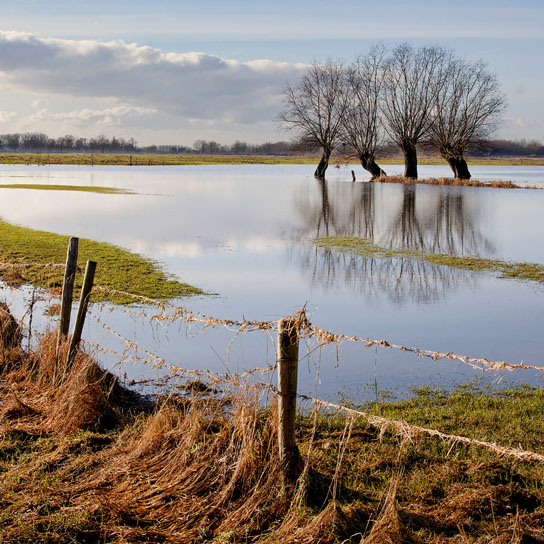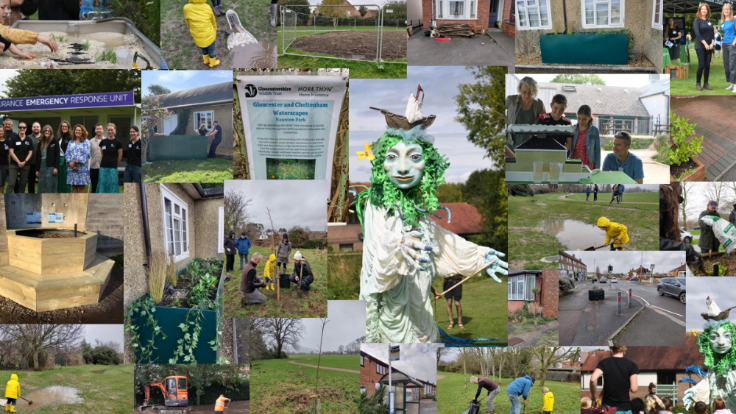
It’s been a fantastic year sowing the seeds of natural flood management in Cheltenham and Gloucester with Gloucestershire Wildlife Trust (GWT). Our Geo-risk team used 20 years of data examining river, coastal and surface water flooding to identify these areas as some of the most acutely flood prone in the country.
Our partnership is designed to build and test a range of nature-based solutions to minimise the impact of flooding while revitalising habitats. This helps promote biodiversity, and educating and involving local communities along the way.
Our involvement is driven by our strategic objectives to build resilient communities, and leverage our unique skills to support adaptation to climate change.
In the first year alone, RSA have helped to:
- Plant 110 trees and over 9,000 wildflower bulbs, bringing essential pollinators back to the area
- Engage over 400 children in workshops, to help them better understand drainage, and how the buildup of water on hard surfaces can lead to flooding
- Install 2 rain gardens, leaky dams and created a new swale in the fight against flooding
It's coming up roses at Naunton Park
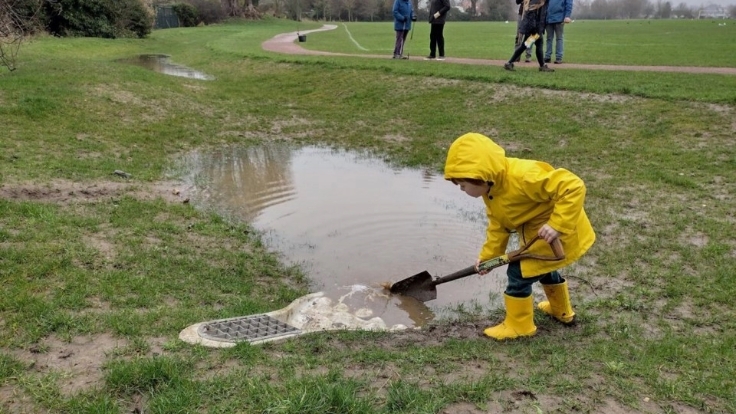
RSA teamed up with GWT and Cheltenham Borough Council to create a natural flood solution, called a swale, in Naunton Park. By digging down in the lowest and wettest corner, the park is now able to capture and slowly release heavy rainfall, keeping it away from neighbouring properties. The boggy terrain promotes biodiversity by creating a different habitat for plants, birds and insects to flourish.
Children from the Eco Team at Naunton Park Primary School celebrated the improvements to their local park by sewing a vibrant wildflower meadow. Native wildflowers, including yellow rattle, will help encourage more butterflies and bees to visit the area. GWT have been working with the school to help the students learn more about the climate and natural solutions to flood management.
Making a splash with Sabrina the Water Goddess
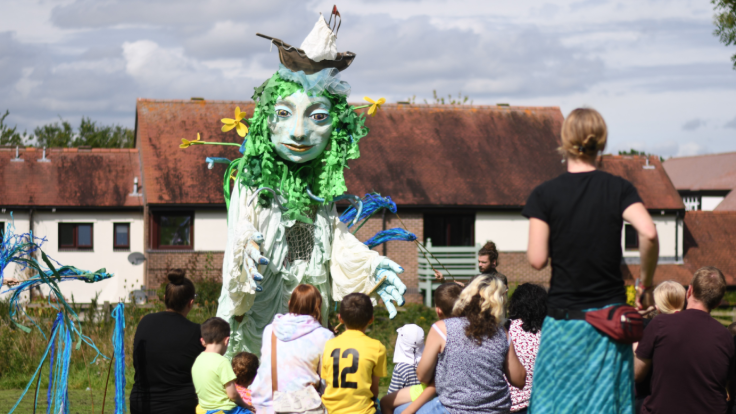
We made a splash of our partnership at the summer launch event at Robinswood Hill Country Park, which was graced by a 3-metre tall Sabrina, Goddess of the River Severn. RSA’s emergency response vehicle received her divine blessing alongside hundreds of children and parents at the summer party.
Visitors were delighted with music, paper craft, pond-dipping, wildlife trails and a tour of the rain gardens around the hill. They were also able to take part in a range of activities to better understand the flow of water, and what they can do to protect their homes from flooding.
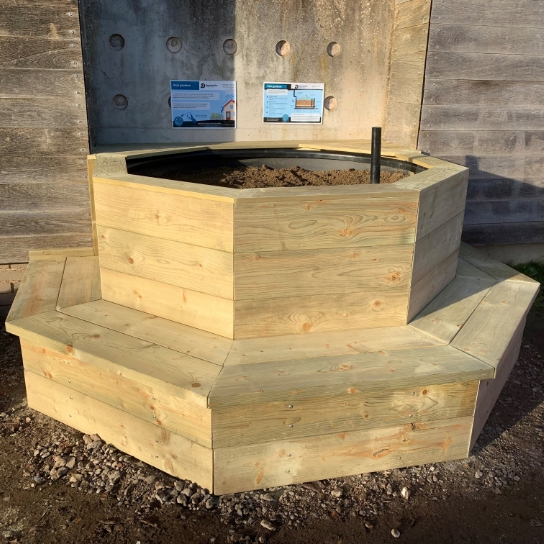
Going gangbusters with rain gardens
RSA partnered with Tuffley Court Community Associate and GWT to design a rain garden for their community, which suffers from low access to green spaces. With support from the children of Grange Primary School, we planted several nectar-rich wildflower species in soil, sand, compost and pebbles. This created a rain garden with the capacity to clean and divert a whopping 1,000 litres of rainwater away from properties.
At the Gloucestershire Royal Hospital, we helped build a rain garden which will add colour, seating space and biodiversity to the hospital entrance whilst also capturing a staggering 800 litres of water. Designed with NHS staff, patients and visitors in mind, we engaged a local artist to create a sculptural 'Rain Slide' to draw water from the roof of the building. We also worked with a team of volunteers to design and build the benches.
What's in store for 2024?
We’re particularly excited to watch the progress of our Nature Highways at Warden Hill, Cheltenham. This will comprise of a rain garden, wild bus shelter and green verge.
A nature highway helps protect animals and provide safe routes to travel by creating green corridors between natural habitats. We’ll also be building additional rain gardens and a new wetland at Plock Court.
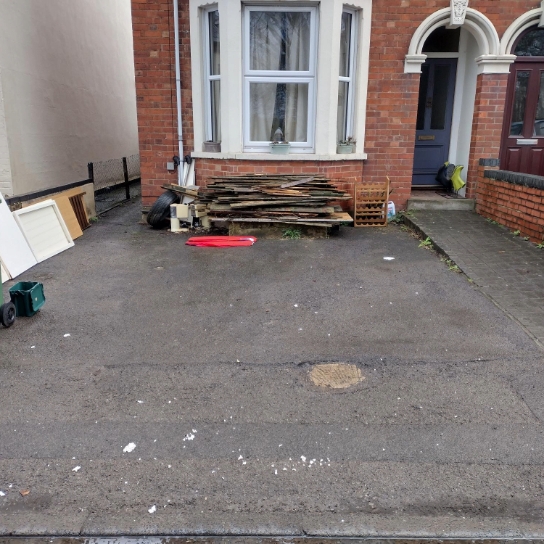
Would you de-pave your driveway?
This year will see 5 residents participate in our demonstrator de-paving project. This will shine a light on sustainable urban drainage and the increase in flood risk hard surfaces present for homes.
De-paving is about removing hard paving, typically concrete or tarmac, and replacing it with a permeable surface such as gravel or open pavers. It’s no mean feat to encourage homeowners to make this change to their properties, and speaks to the compelling case GWT are able to build from their research.
At RSA, we’re there for our customers when the worst happens, and we have exceptional experience of supporting people through severe flooding.
With these different natural interventions, we’re demonstrating our commitment to helping communities proactively adapt to climate change and build resilience. We’re spreading awareness on flooding and practical solutions that benefit the environment, and we'll be carefully tracking progress to share our findings with other flood-prone counties.
Understanding the value of nature-based solutions
To this end, RSA are further expanding our partnership to work with The Wildlife Trusts to build the knowledge base on the wider benefits of Natural Flood Management (NFM) by commissioning a nation-wide research project.
Laura Spiers, Head of Social Impact and ESG, remarked: “We want to expand the available modelling and quantification of the full benefits of NFM schemes for climate, people and nature. Understanding this is important to make a comprehensive economic case for NFM, which we really believe in and hope to encourage others to join in as well.”
With warmer, wetter winters predicted to be more typical in the future, flooding is here to stay in the UK. In partnership with GWT, we’re taking tangible actions to make a difference by building community resilience.
